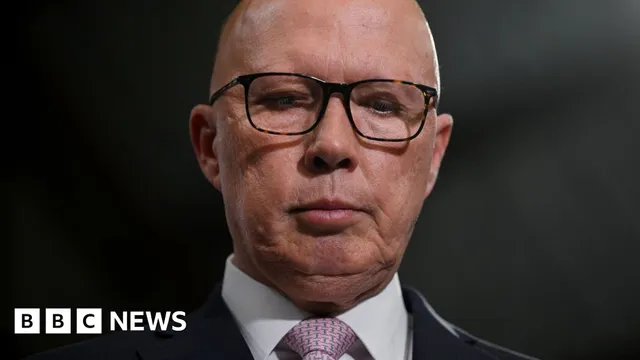
Ali France unseats Peter Dutton in historic election upset
2025-05-03 14:00- In the Australia federal election on May 3, 2025, Ali France defeated Peter Dutton in the Dickson seat, marking a notable political achievement.
- Dutton, who served in Parliament for 24 years, faced a challenging campaign that highlighted issues with his party's coherence and responses to public concerns.
- The election result reflects a significant shift in voter priorities towards cost-of-living issues and a demand for more effective representation.
Express your sentiment!
Insights
In Australia’s federal election on May 3, 2025, Ali France defeated Peter Dutton, marking a significant political shift as Dutton became the first federal opposition leader to lose his own seat. Having held the Dickson seat for 24 years, Dutton's defeat followed a challenging campaign that many attributed to a lack of coherent policies and ongoing comparisons to former U.S. President Donald Trump. His proposal to cut more than 40,000 public sector jobs did little to reassure voters, and his repeated efforts to distance himself from Trump failed to resonate during the election period. On the other hand, Ali France positioned herself as a strong advocate for cost-of-living solutions, campaigning for tax cuts and improved public healthcare. Her personal background as a para-athlete and a single mother added depth to her campaign. France had steadily increased her voter share in previous elections, having garnered 45.4% in 2019 and 48.3% in 2022, suggesting that her constituency recognized her potential as a representative. The loss of Dutton's seat was not just a personal defeat but a dramatic moment for the Liberal National Coalition, which faced criticism for its lack of tangible policies. France's victory was also marked by a poignant personal narrative; she lost her son, Henry, to leukemia in early 2024 and drew strength from this tragedy to run for office, promising to fight for others facing similar hardships. During his concession speech, Dutton acknowledged her strength and noted that her deceased son would be proud of her achievement. This interaction underscored the emotional weight of the election and served as a reminder of the human stories intertwined with political contests. The overarching theme of the election was the cost-of-living crisis, which played a crucial role in shaping voter sentiment. Analysts suggested that Labor’s messaging resonated firmly, contrasting with Dutton’s perceived inability to present a viable alternative to Australian voters. In the wake of the election results, Dutton’s party would need to reassess its strategies and policies to regain the confidence of the electorate. France's success indicates a shift in voter priorities and an impetus for change in Australian politics, especially against the backdrop of pressing social issues like healthcare and the economy.
Contexts
The cost of living has emerged as a significant factor influencing Australian electoral outcomes, shaping voter priorities and impacting party platforms. Over recent years, the rising expenses associated with housing, food, transportation, and utilities have intensified concerns among Australian citizens. These challenges have led to an increased public demand for policies that address affordability and economic stability, with voters seeking governmental solutions to ease their financial burdens. Consequently, political candidates and parties are compelled to integrate cost of living considerations into their campaign strategies and manifestos, often prioritizing reforms that promise to alleviate economic pressures on households. In the lead-up to elections, the link between cost of living and voter sentiment becomes more pronounced. Research indicates that pocketbook issues, including inflation and wage stagnation, tend to be top-of-mind for many constituents. Candidates who fail to recognize the significance of these concerns may find themselves out of touch with the electorate, leading to possible electoral repercussions. The Australian populace is increasingly inclined to evaluate party platforms based on proposed measures that aim to tackle escalating living costs, such as housing affordability initiatives and social welfare enhancements. This shift highlights the necessity for parties to engage in thorough analysis and response to the evolving economic landscape. Moreover, the impact of the cost of living on Australian elections is not limited to major parties; smaller parties and independent candidates have also found traction by directly addressing these issues. With voters expressing disillusionment with traditional political frameworks, there is potential for alternative voices to gain legislative influence by advocating for innovative policies aimed at mitigating the financial hardships faced by everyday Australians. Additionally, the rise of social media and community engagement platforms has empowered constituents to better communicate their concerns about the cost of living, creating an avenue for grassroots campaigns to flourish. Ultimately, the interplay between the cost of living and Australian elections underscores the critical need for responsive and responsible governance. Politicians, while formulating their campaign narratives, must not only acknowledge the economic realities confronting their constituents but also actively propose actionable solutions. As the influence of living costs continues to crystallize as a dominant electoral issue, the obligation of public representatives to address these concerns becomes even more paramount. The future direction of Australian politics may very well hinge on the successful navigation of these pressing economic challenges.